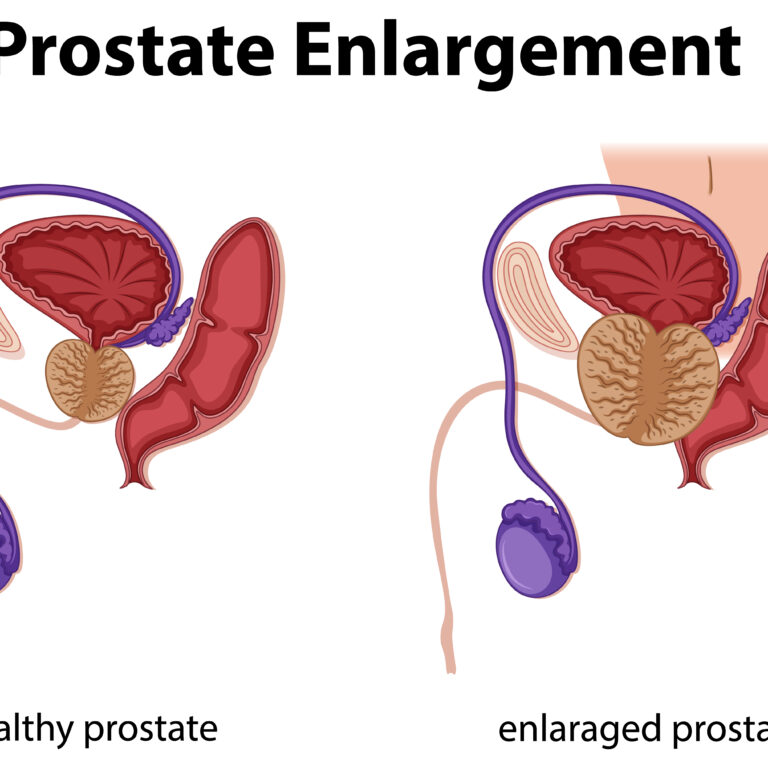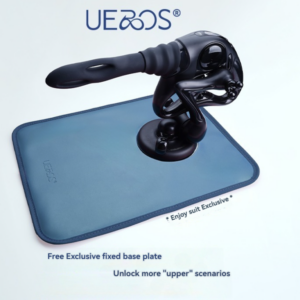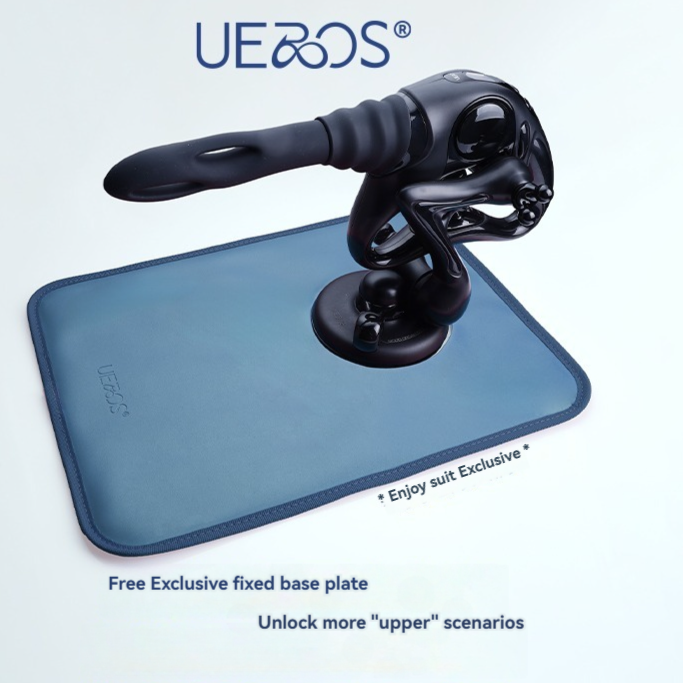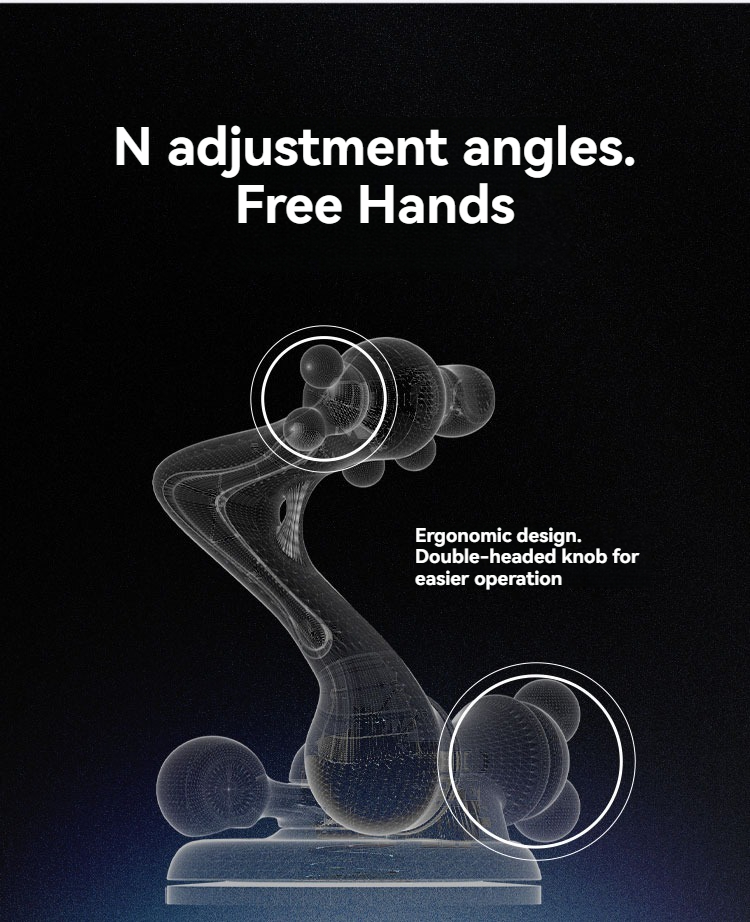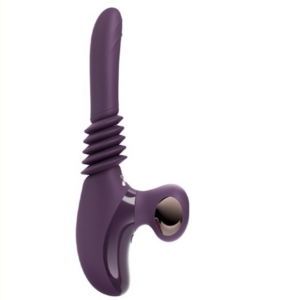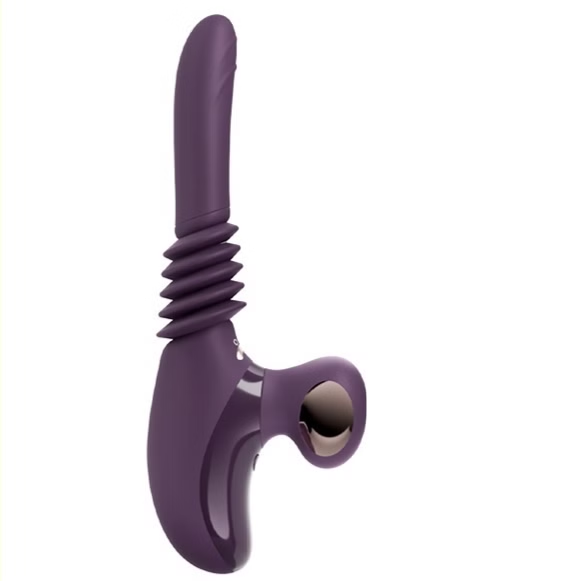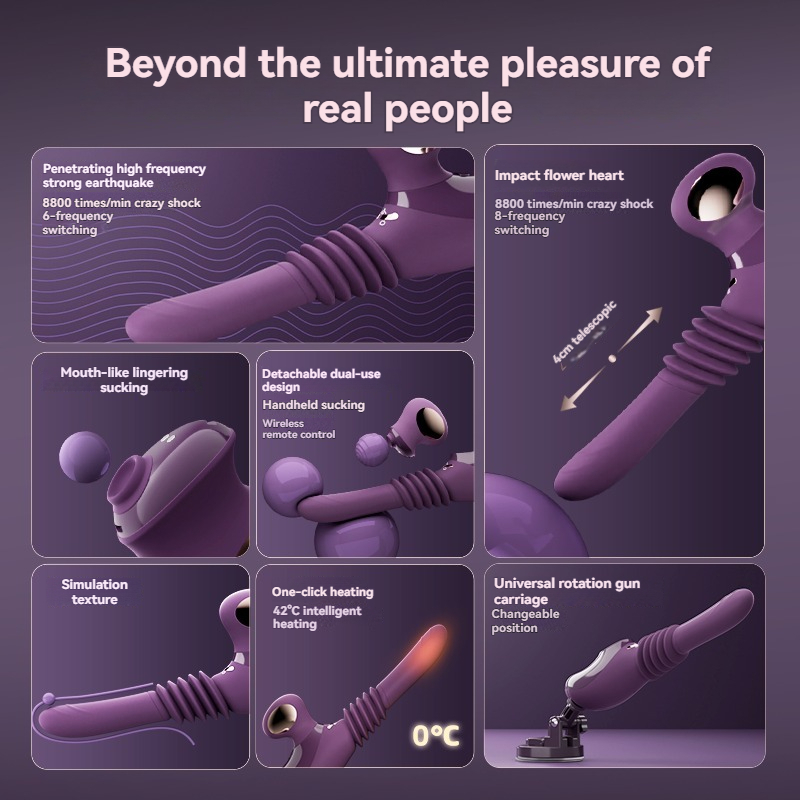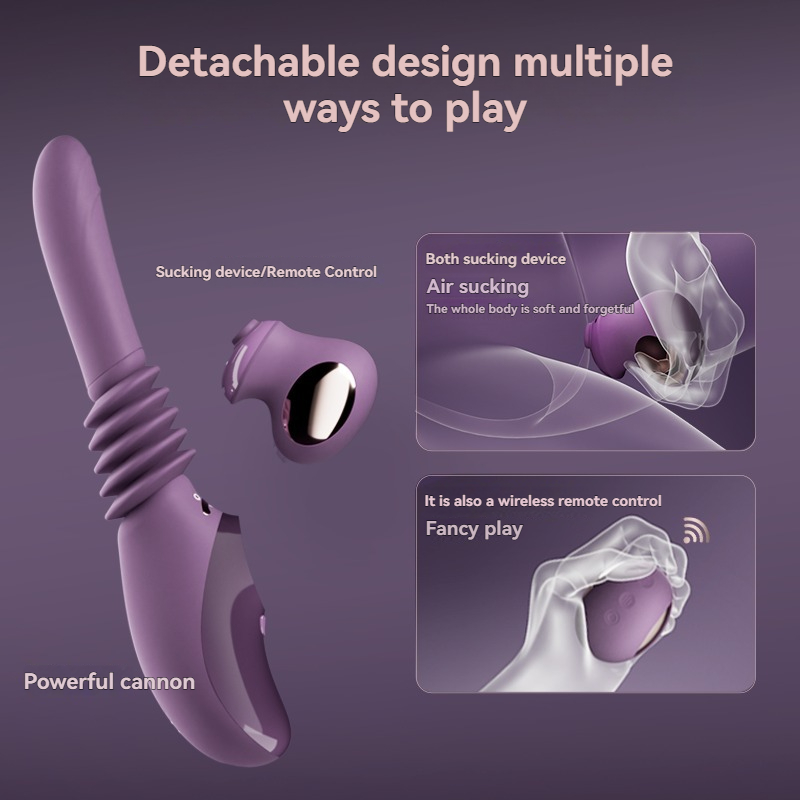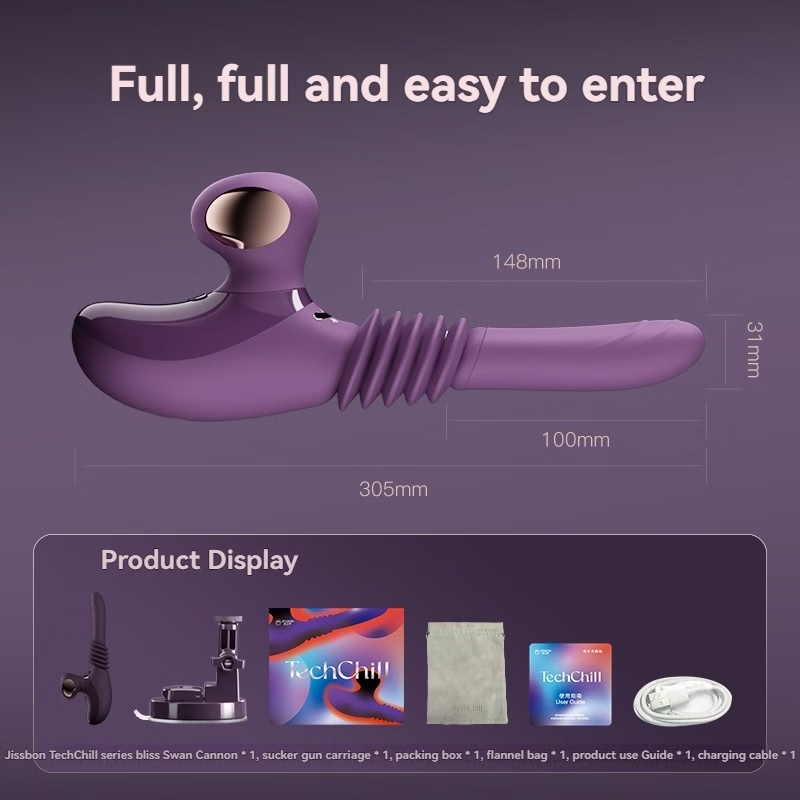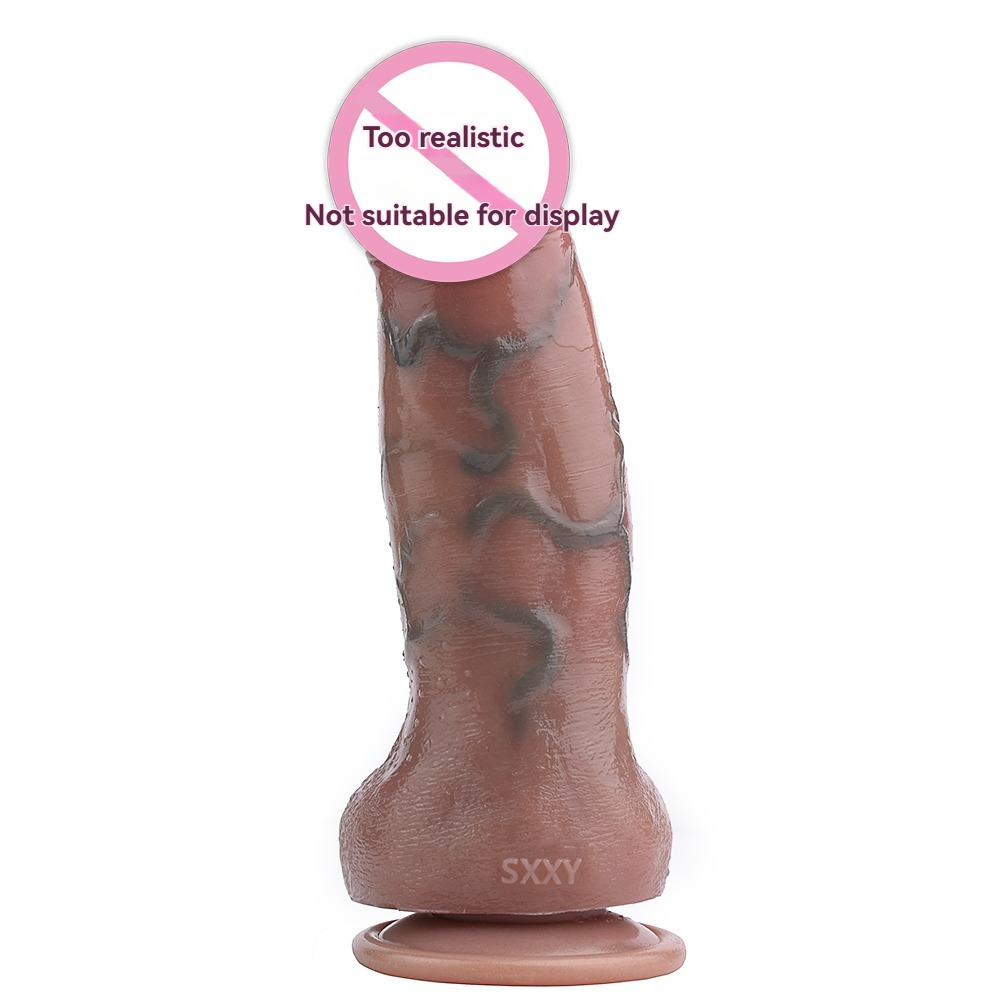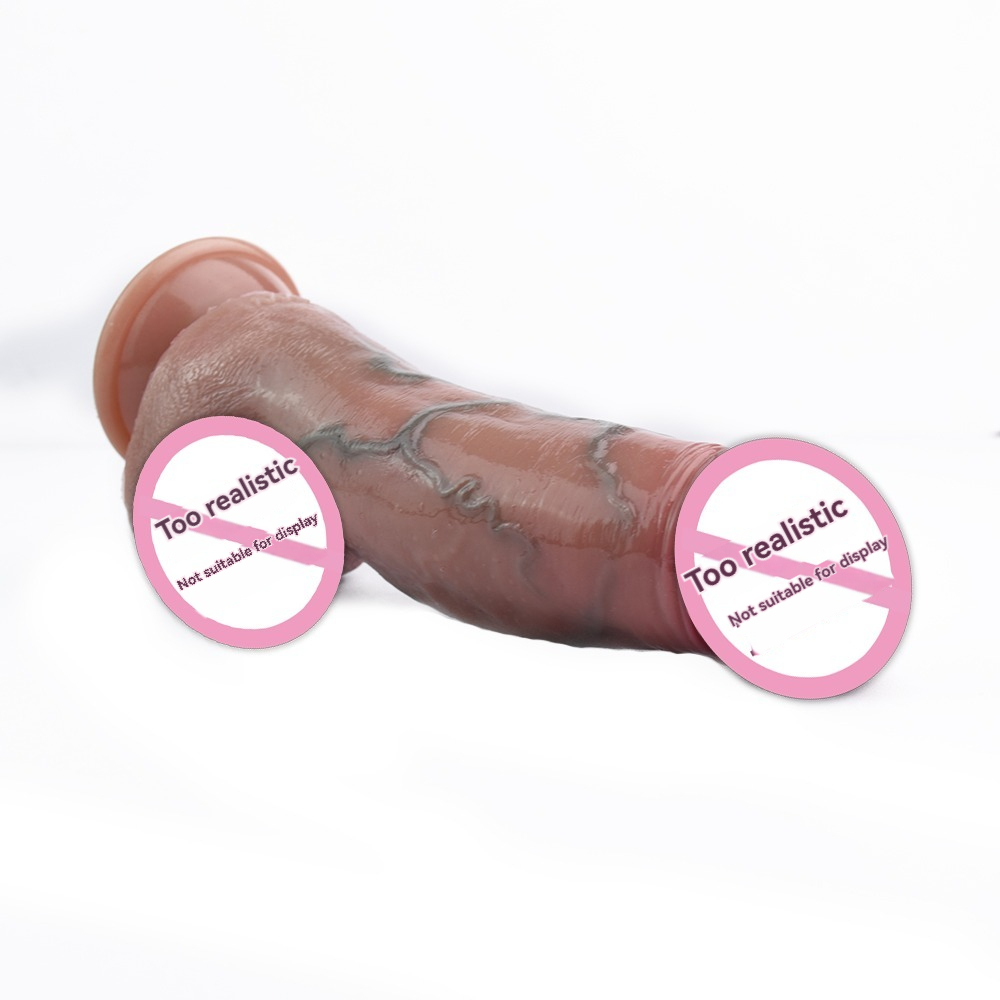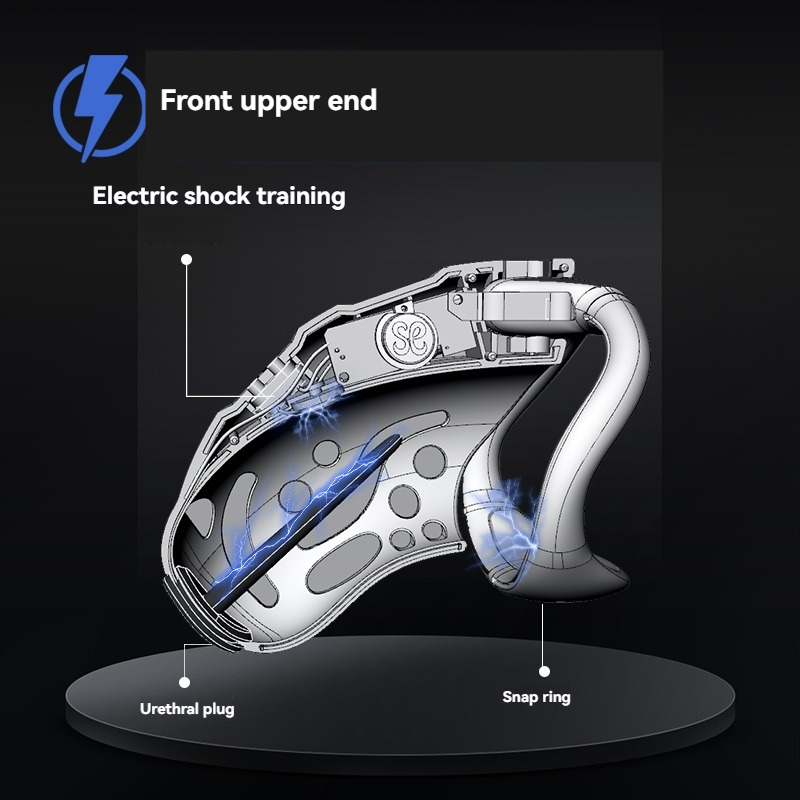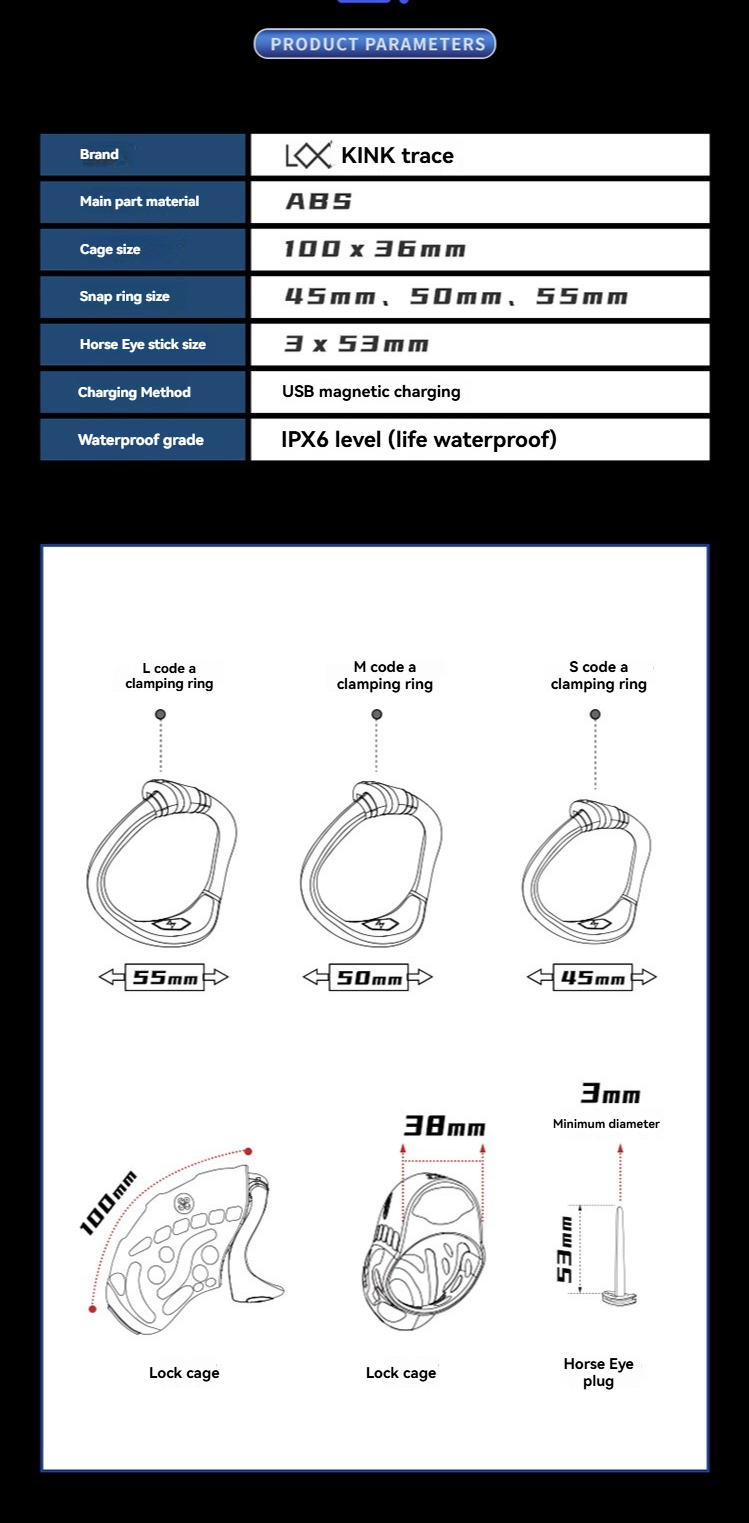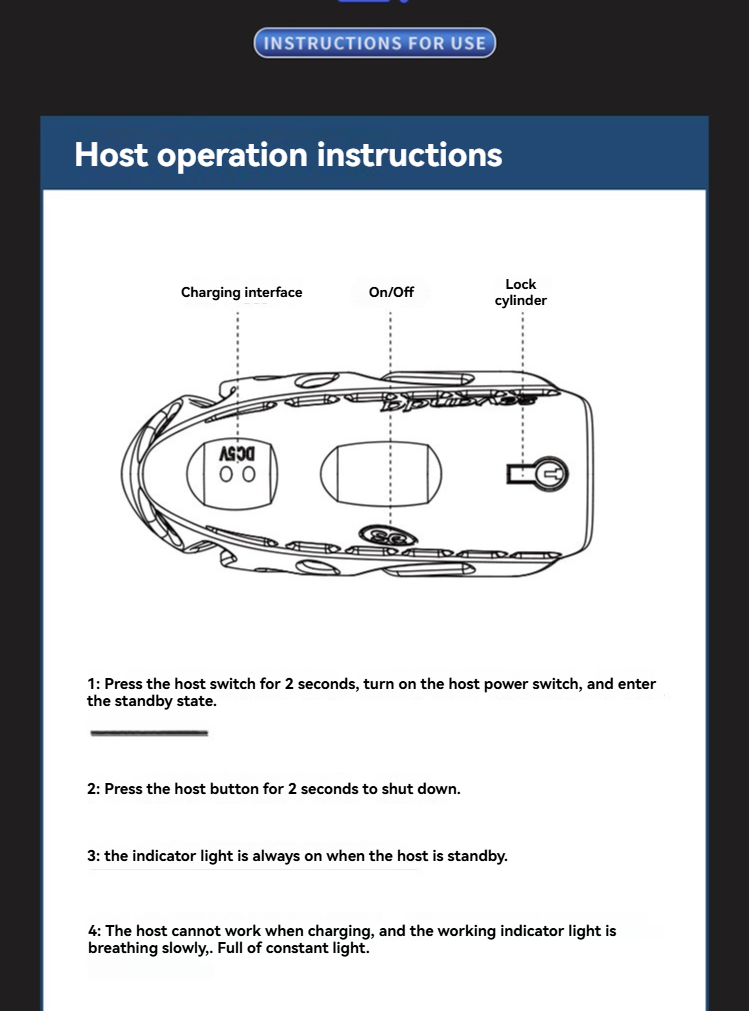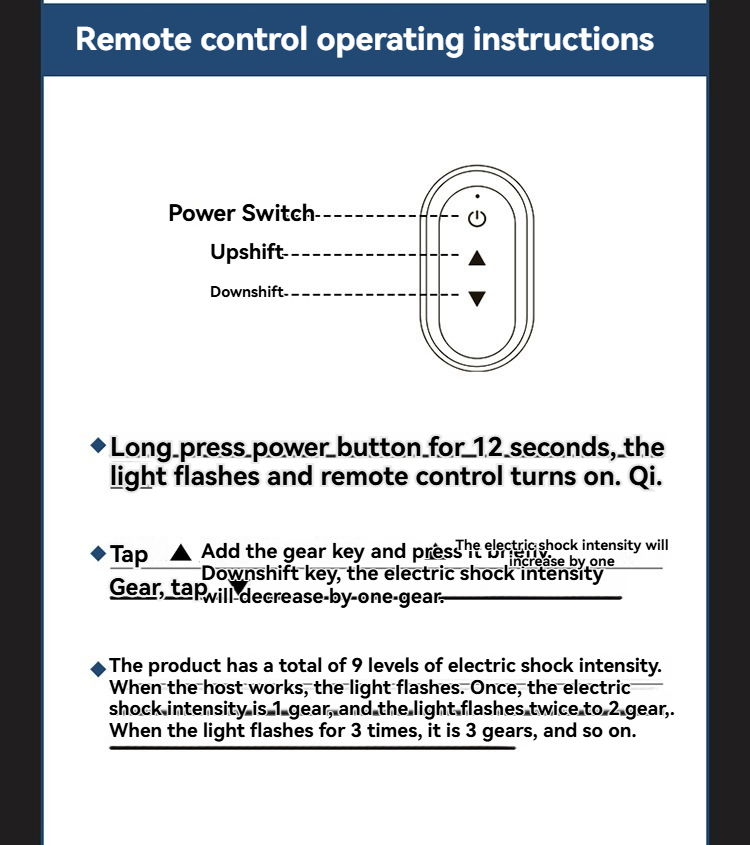Loving Beyond Parenthood: Parenting and Intimacy for Gay Fathers Balancing Roles

Key Takeaways-Loving Beyond Parenthood: Parenting and Intimacy for Gay Fathers Balancing Roles
- Balancing parenting and intimacy requires effective communication, mutual support, and time management.
- Gay fathers may face unique challenges that necessitate tailored strategies to maintain a fulfilling intimate relationship.
- Intimacy-enhancing products from sextoyforyou.store can support physical connection amidst parenting responsibilities.
- Building a supportive network and seeking professional guidance are crucial for navigating the dual roles of parenting and partnership.
- Prioritizing self-care and relationship-focused activities helps sustain intimacy and personal well-being.
Table of Contents
- Introduction
- Balancing Parenting and Intimacy
- Unique Challenges for Gay Fathers
- Strategies for Maintaining Intimacy
- Intimacy-Enhancing Products and Their Role
- Case Studies: Successful Balancing of Roles
- Comparison Table: Intimacy Solutions for Gay Fathers
- Conclusion
- Frequently Asked Questions (FAQs)
- References
Introduction
Parenthood is a transformative experience that reshapes every facet of an individual’s life, including their romantic relationships. For gay fathers, the journey of balancing parenting responsibilities with maintaining intimacy can present unique challenges and opportunities for growth. Embracing the dual roles of being a parent and a partner requires effective communication, mutual support, and intentional strategies to sustain a fulfilling intimate relationship amidst the demands of parenthood.
Intimacy in relationships encompasses emotional closeness, trust, and physical connection, all of which are essential for a healthy and resilient partnership. However, the demands of parenting—such as time constraints, stress, and the shift in priorities—can strain the intimate bond between partners. For gay fathers, societal expectations and potential stigma may further complicate the ability to maintain intimacy while fulfilling parental duties.
This comprehensive guide explores the intricate balance gay fathers must navigate between parenting and maintaining intimacy. It provides deep insights, evidence-based strategies, and practical tools to help couples sustain their romantic connection while embracing their roles as parents. From understanding the unique challenges faced by gay fathers to implementing effective strategies and utilizing intimacy-enhancing products, this guide serves as an essential resource for maintaining a strong and loving relationship amidst the joys and trials of parenthood.
Whether you are a gay father seeking to enhance your relationship or a partner aiming to offer support, this guide offers valuable information to help you navigate the complexities of balancing parenting and intimacy, ensuring that your relationship remains a source of strength and fulfillment.
Balancing Parenting and Intimacy
Time Management
One of the primary challenges in balancing parenting and intimacy is managing time effectively. Parenting demands can be time-consuming, leaving limited opportunities for partners to connect intimately. Establishing a schedule that prioritizes both parenting responsibilities and time for each other is crucial.
Effective time management involves setting aside dedicated time for intimate activities, such as date nights or quiet moments together after the children have gone to bed. Utilizing tools like shared calendars and scheduling apps can help couples organize their time more efficiently, ensuring that both partners feel valued and connected.
Additionally, delegating parenting duties when possible—such as sharing nighttime feedings or alternating childcare responsibilities—can free up time for intimacy and personal connection. Creating a routine that balances the needs of the children with the needs of the relationship helps maintain a harmonious and fulfilling family dynamic.
Emotional Support
Parenting can bring about a range of emotions, from joy and fulfillment to stress and exhaustion. Providing emotional support to each other is essential for maintaining intimacy. Partners should strive to create an environment where they can express their feelings openly and offer reassurance and encouragement.
Engaging in regular check-ins to discuss emotional well-being and the challenges of parenting helps couples stay attuned to each other’s needs. Acts of kindness, such as preparing a favorite meal or offering a massage, can also foster emotional closeness and reinforce the intimate bond.
Moreover, recognizing and validating each other’s efforts as parents contributes to a sense of teamwork and mutual respect, which are foundational for sustaining intimacy. Emotional support helps partners feel understood and appreciated, reducing the strain that parenting responsibilities can place on the relationship.
Maintaining Physical Connection
Maintaining physical intimacy is a vital aspect of a healthy relationship, but it can be challenging for gay fathers who are juggling parenting duties. Physical connection fosters emotional closeness and reaffirms the romantic bond between partners.
To maintain physical connection, couples should prioritize intimate activities, even if they need to be brief or infrequent. Simple gestures like holding hands, hugging, or cuddling can help sustain physical intimacy and emotional closeness.
Furthermore, exploring creative ways to incorporate intimacy into daily routines—such as sharing a morning coffee together or taking a walk after dinner—can enhance the physical and emotional connection without requiring significant time commitments.
Using intimacy-enhancing products, such as lubricants, vibrators, and massage oils from sextoyforyou.store, can also support physical connection by providing additional stimulation and comfort, making intimate activities more enjoyable and fulfilling.

Unique Challenges for Gay Fathers
Societal Expectations and Stigma
Gay fathers often navigate societal expectations and potential stigma that can impact their relationships. Despite growing acceptance, gay fathers may still encounter biases and misconceptions that can affect their self-esteem and relationship dynamics.
Experiencing societal stigma can lead to increased stress and pressure on the relationship, as couples may feel the need to defend their family structure or manage external judgments. This external pressure can strain the intimate bond between partners, making it more challenging to maintain a supportive and loving relationship.
Addressing these societal challenges involves building a strong support network of friends, family, and LGBTQ+ communities who affirm and celebrate the couple’s relationship. Engaging with supportive communities provides a sense of belonging and reduces feelings of isolation, fostering resilience and emotional well-being.
Role Flexibility and Sharing Responsibilities
Gay fathers may face unique challenges in defining and balancing parental roles within the household. Traditional gender roles can influence expectations about parenting responsibilities, leading to potential conflicts or imbalances in the division of labor.
To address these challenges, couples should engage in open discussions about their expectations and preferences regarding parenting roles. Establishing a flexible approach to sharing responsibilities—where tasks are divided based on each partner’s strengths, interests, and availability—can help create a balanced and harmonious family dynamic.
Flexibility in roles ensures that both partners feel valued and supported, reducing the likelihood of resentment or burnout. Sharing responsibilities also allows each partner to contribute meaningfully to the family, fostering a sense of teamwork and mutual respect that enhances intimacy and relationship satisfaction.
Work-Life Balance
Maintaining a healthy work-life balance is another significant challenge for gay fathers. Balancing professional obligations with parenting duties can be demanding, often leading to stress and fatigue that can impact both the relationship and intimate life.
To achieve a better work-life balance, couples should prioritize setting boundaries between work and personal life. This may involve negotiating flexible work schedules, delegating tasks, and ensuring that both partners have time for relaxation and connection outside of their professional commitments.
Implementing strategies like prioritizing tasks, minimizing distractions, and setting aside dedicated family time can help reduce stress and enhance the quality of interactions between partners. A balanced approach to work and personal life contributes to a more fulfilling and intimate relationship, as both partners feel supported and connected despite their professional demands.
Parental Identity and Relationship Dynamics
Transitioning into parenthood often involves redefining parental identities and relationship dynamics. Gay fathers may grapple with questions about how to best fulfill their roles as parents while maintaining their identities and intimate connections.
Developing a cohesive parental identity that aligns with both partners’ values and parenting styles is essential for fostering a supportive and nurturing environment for their children. This process involves open communication, mutual respect, and a willingness to adapt and grow together as a couple and as parents.
Understanding and embracing each partner’s unique strengths and contributions to parenting can enhance relationship dynamics and foster a more intimate and balanced partnership. A shared vision for parenting and a unified approach to raising children strengthen the emotional and physical connection between partners, ensuring that the relationship remains a source of strength and support amidst the challenges of parenthood.
Strategies for Maintaining Intimacy
Open and Honest Communication
Effective communication is the cornerstone of maintaining intimacy in any relationship, especially for gay fathers balancing parenting roles. Open and honest dialogue allows partners to express their needs, desires, and concerns, fostering mutual understanding and emotional connection.
Setting aside dedicated time for meaningful conversations ensures that both partners have the opportunity to discuss their feelings and experiences without distractions. This can involve regular check-ins, where each partner shares their thoughts and emotions, or scheduling weekly date nights to focus solely on the relationship.
Moreover, practicing active listening—where each partner fully engages and empathizes with the other—enhances communication effectiveness. Active listening involves giving undivided attention, validating each other’s feelings, and responding thoughtfully, which helps build trust and reinforces the intimate bond between partners.
Additionally, utilizing non-verbal communication, such as affectionate gestures and physical touch, can complement verbal interactions and strengthen the emotional and physical connection. By fostering a culture of open communication, couples can navigate the challenges of parenting while maintaining a strong and loving relationship.
Scheduled Intimacy
In the hustle and bustle of parenting, spontaneity in intimate moments can become rare. Scheduling intimacy can ensure that both partners prioritize their relationship amidst the demands of parenting duties.
Scheduling date nights or intimate evenings provides a structured opportunity for partners to reconnect and focus on their relationship. This intentional planning helps create anticipation and ensures that intimate time is not neglected due to other responsibilities.
Moreover, scheduling intimacy can help couples explore and enjoy each other’s company in a relaxed and stress-free environment. By carving out dedicated time for intimacy, partners can maintain a fulfilling and satisfying sexual relationship, which is essential for emotional closeness and relationship satisfaction.
Additionally, scheduled intimacy allows couples to plan and incorporate intimacy-enhancing products, such as lubricants and vibrators, into their routine, further enhancing the quality and enjoyment of their intimate moments.
Mutual Support and Understanding
Mutual support and understanding are crucial for maintaining intimacy, especially when balancing the demands of parenting. Partners should strive to be each other’s primary source of support, offering encouragement and assistance in managing parenting responsibilities and personal challenges.
Understanding each other’s strengths and weaknesses allows couples to complement each other and provide the necessary support in areas where one partner may need assistance. This collaborative approach fosters a sense of teamwork and mutual respect, enhancing both emotional and physical intimacy.
Furthermore, being attuned to each other’s emotional states and offering reassurance during times of stress or fatigue helps maintain a supportive and nurturing environment. This emotional support is essential for sustaining intimacy, as it ensures that both partners feel valued and cared for amidst the challenges of parenthood.
Additionally, celebrating each other’s successes and acknowledging the efforts made in parenting reinforces a positive and supportive dynamic, contributing to a stronger and more intimate relationship.
Quality Time Together
Spending quality time together is essential for maintaining intimacy in a relationship. Quality time involves engaging in activities that both partners enjoy and that foster connection and bonding.
Whether it’s enjoying a shared hobby, going for a walk, cooking together, or simply watching a movie, engaging in these activities provides opportunities for partners to connect emotionally and physically. Quality time helps reinforce the emotional bond and creates shared memories that strengthen the relationship.
Moreover, engaging in activities that promote relaxation and enjoyment can reduce stress and enhance overall relationship satisfaction. By prioritizing quality time, couples can maintain a sense of closeness and intimacy, even amidst the busy and demanding nature of parenting.
Additionally, exploring new activities together can add novelty and excitement to the relationship, preventing monotony and keeping the connection vibrant and engaging.
Intimacy-Enhancing Products
Intimacy-enhancing products can play a significant role in sustaining and enriching the physical connection between partners. These products, such as lubricants, vibrators, massage oils, and remote-controlled devices, can help overcome physical intimacy challenges and enhance mutual satisfaction.
Integrating these products into the relationship provides new avenues for exploration and pleasure, making intimate activities more enjoyable and fulfilling. For example, using lubricants can reduce discomfort during intercourse, while vibrators can add extra stimulation and enhance sexual satisfaction for both partners.
Massage oils can be used to create a relaxing and intimate environment, fostering emotional closeness and physical connection through sensual touch. Remote-controlled devices, such as interactive vibrators, allow partners to engage in playful and consensual exploration, even when physically apart, maintaining intimacy in long-distance relationships.
Platforms like sextoyforyou.store offer a wide range of intimacy-enhancing products designed to meet the diverse needs of gay fathers, ensuring that couples have access to the tools they need to maintain a satisfying and enjoyable intimate life.

Intimacy-Enhancing Products and Their Role
Lubricants and Massage Oils
Lubricants and massage oils are essential tools for enhancing physical intimacy, especially when experiencing changes in sexual function during parenting and transition phases. High-quality lubricants reduce friction and increase comfort during intimate activities, making sex more enjoyable and reducing the risk of discomfort or injury.
Massage oils, on the other hand, play a significant role in fostering emotional and physical connections. Sharing a massage can create a relaxing and intimate environment, promoting trust and emotional closeness. Massages help in releasing tension, reducing stress, and enhancing the overall sense of well-being, which contributes to a more fulfilling intimate experience.
Products from sextoyforyou.store offer a variety of lubricants and massage oils that are body-safe, non-irritating, and designed to enhance the intimate experience for both partners. These products are formulated to cater to different sensitivities and preferences, ensuring that couples can find the perfect match to support their intimate activities.
Incorporating these products into the relationship can help couples adapt to physical changes by providing additional comfort and pleasure, thereby maintaining a satisfying and enjoyable intimate connection.
Vibrators and Sexual Aids
Vibrators and other sexual aids can help overcome challenges related to sexual function and enhance mutual satisfaction. These products provide additional stimulation and can help achieve orgasms, fostering a more fulfilling sexual relationship.
Prostate massagers, in particular, are beneficial for gay fathers, offering targeted stimulation that can enhance sexual pleasure and health. Prostate massagers stimulate the prostate gland, which can lead to intense orgasms and improved sexual satisfaction. These devices can be used alone or with a partner, providing versatile options for enhancing sexual intimacy.
Integrating vibrators into intimate activities can add variety and excitement, strengthening the physical connection between partners. By exploring new forms of stimulation, couples can rediscover pleasure and maintain a dynamic and satisfying intimate life.
Platforms like sextoyforyou.store offer a wide range of vibrators and sexual aids designed to meet the diverse needs of gay fathers, ensuring a satisfying and enjoyable intimate experience. These products are crafted with quality materials and innovative designs to enhance both comfort and pleasure.
Remote-Controlled Devices
Remote-controlled devices offer a unique way to maintain intimacy, especially in long-distance relationships or during periods when partners are physically apart due to parenting duties. These devices can be controlled via smartphone apps, allowing one partner to initiate stimulation and pleasure from a distance.
Remote-controlled vibrators and other interactive toys enable real-time interaction, fostering a sense of presence and connection even when physically apart. These devices promote playful and consensual exploration, enhancing both emotional and physical intimacy by creating shared moments of pleasure and connection.
Integrating remote-controlled devices into the relationship can help couples maintain a strong and satisfying intimate connection, regardless of geographical separation. These devices serve as tools for mutual pleasure and can help bridge the physical gap, ensuring that the relationship remains vibrant and fulfilling.
Intimacy Games and Kits
Intimacy games and kits offer structured ways for couples to engage in intimate activities, enhancing both emotional and physical connections. These products often include a variety of tools and prompts that encourage couples to explore their desires, communicate openly, and engage in shared experiences.
Intimacy games can range from conversation starters to interactive activities that promote playful interaction and deeper emotional bonding. These games facilitate open dialogue about sexual preferences, fantasies, and boundaries, fostering a more transparent and trusting relationship. By engaging in these structured activities, couples can explore new dimensions of their relationship in a fun and supportive environment.
Kits that include multiple intimacy-enhancing products, such as vibrators, massage oils, and erotic games, provide a comprehensive approach to enhancing intimacy. These kits encourage couples to experiment and discover new ways to connect, enriching their intimate life and strengthening their emotional bond. By providing a variety of tools and activities, intimacy kits ensure that couples have the resources they need to maintain a dynamic and satisfying intimate connection.
Integrating these products and games into the relationship routine can help couples adapt to the changes brought about by parenting, maintaining a fulfilling and enjoyable intimate life despite the challenges.
Case Studies: Successful Balancing of Roles
Case Study 1: Navigating Emotional Changes with Support and Communication
Jordan and Michael, a gay couple, faced significant emotional challenges as they transitioned into parenthood. Jordan, the primary caregiver, experienced fluctuations in mood and self-esteem due to the demands of parenting and the societal pressures associated with being a gay father. These emotional shifts impacted their emotional intimacy, leading to feelings of disconnection and frustration.
To address these challenges, Jordan and Michael prioritized open and honest communication. They established a routine of weekly check-ins where they could discuss their feelings, challenges, and successes without judgment. This dedicated time for conversation allowed them to express their emotions openly and provided a space for mutual support and understanding.
Additionally, they sought the support of a couples therapist specializing in LGBTQ+ issues, which provided them with strategies to maintain their emotional connection and navigate the emotional fluctuations associated with parenting. The therapist facilitated discussions that helped them identify and address underlying issues, enhancing their ability to support each other effectively.
To further sustain their intimate connection, Jordan and Michael incorporated intimacy-enhancing products from sextoyforyou.store, such as massage oils and vibrators, into their routine. These products provided additional ways to connect physically, fostering a sense of normalcy and pleasure amidst the challenges of parenting.
Through consistent effort, professional support, and the integration of intimacy tools, Jordan and Michael successfully navigated the emotional challenges of transitioning into parenthood. Their relationship became stronger and more resilient, demonstrating the importance of communication and mutual support in maintaining intimacy during significant life changes.
Case Study 2: Overcoming Sexual Function Challenges with Intimacy Tools
Alex and Sam, a trans gay couple, encountered sexual function challenges as Alex transitioned. Hormone therapy led to a decrease in libido and erectile difficulties, affecting their sexual intimacy and overall relationship satisfaction. These changes created feelings of frustration and diminished self-esteem for both partners, threatening the intimate bond they had built over the years.
Recognizing the impact of these changes, Alex and Sam decided to explore intimacy-enhancing products from sextoyforyou.store. They incorporated lubricants and vibrators into their intimate activities, which helped alleviate discomfort and enhance sexual pleasure for both partners. The use of lubricants reduced friction and increased comfort during sexual activities, making intimacy more enjoyable and less physically taxing for Alex.
Additionally, they engaged in open discussions about their sexual needs and preferences, allowing them to adapt their intimate practices to accommodate the changes Alex was experiencing. This open dialogue helped them identify new ways to connect physically and maintain sexual satisfaction despite the challenges.
They also sought the guidance of a sexual health therapist, which provided them with strategies to maintain sexual intimacy and satisfaction despite the physical challenges. The therapist helped them explore alternative forms of intimacy and develop techniques to enhance their sexual connection, ensuring that their relationship remained fulfilling and satisfying.
Through the use of intimacy-enhancing products and proactive communication, Alex and Sam were able to overcome their sexual function challenges, sustaining and enhancing their physical intimacy and overall relationship satisfaction during Alex’s transition.
Case Study 3: Maintaining Intimacy in a Long-Distance Relationship During Transition
Ryan and Tyler, a trans gay couple, faced the challenge of maintaining intimacy while Ryan was undergoing transition-related medical procedures in another city. The physical separation threatened their emotional and physical connection, making it difficult to sustain intimacy and maintain a strong relationship.
To overcome these challenges, Ryan and Tyler utilized remote-controlled vibrators and interactive toys from sextoyforyou.store, allowing Tyler to initiate stimulation during Ryan’s recovery period. These devices provided a way for Ryan and Tyler to maintain physical intimacy despite the distance, fostering a sense of presence and shared pleasure.
Additionally, they used video calling platforms to engage in shared activities, such as virtual date nights and guided meditation sessions, which helped reinforce their emotional bond and maintain a sense of togetherness. Engaging in these activities provided opportunities for emotional connection and mutual support, enhancing their overall relationship satisfaction.
By leveraging technology and intimacy-enhancing products, Ryan and Tyler successfully maintained their intimacy and emotional connection, ensuring that their relationship remained strong and fulfilling despite the physical separation during Ryan’s transition.
This case study highlights the effectiveness of combining technology with intimacy tools to sustain a fulfilling relationship in a long-distance context. It underscores the importance of creativity and adaptability in maintaining intimacy amidst the challenges of physical separation and medical transitions.
Comparison Table: Intimacy Solutions for Gay Fathers
| Solution | Description | Benefits | Best For |
|---|---|---|---|
| Couples Therapy | Professional counseling to address relationship dynamics and intimacy challenges. | Improves communication, rebuilds trust, provides structured support. | Couples facing emotional or communication barriers during parenting. |
| Intimacy-Enhancing Products | Products like lubricants, vibrators, and massage oils designed to support physical intimacy. | Enhances sexual satisfaction, facilitates exploration, reduces discomfort. | Couples seeking to overcome sexual function challenges and enhance physical connection. |
| Remote-Controlled Devices | Toys that can be controlled remotely via smartphone apps, ideal for long-distance relationships. | Maintains physical intimacy across distances, promotes playful interaction. | Couples in long-distance relationships or those needing to sustain intimacy during physical separation. |
| Mindfulness and Meditation | Practices that promote present-moment awareness and emotional regulation. | Reduces stress, enhances emotional connection, fosters mutual support. | Couples looking to strengthen emotional bonds and manage stress during parenting. |
| Support Groups | Community-based groups where gay fathers can share experiences and gain support. | Provides emotional support, reduces feelings of isolation, offers shared experiences. | Individuals seeking community support and shared experiences during parenting. |
| Shared Activities | Engaging in hobbies and activities together to foster connection. | Enhances teamwork, creates shared memories, strengthens emotional bonds. | Couples looking to build shared interests and deepen their connection. |
Conclusion
Balancing the roles of parenthood and maintaining intimacy is a complex and ongoing process that requires dedication, communication, and mutual support. For gay fathers, this balance is further nuanced by societal expectations and the need to navigate unique challenges that can impact the relationship dynamics.
Effective communication stands as the cornerstone of sustaining intimacy. By prioritizing open dialogue, setting aside dedicated time for each other, and actively listening to one another’s needs and concerns, couples can foster a strong emotional and physical connection that withstands the demands of parenting.
Integrating intimacy-enhancing products from reputable sources like sextoyforyou.store provides practical solutions to overcome physical intimacy challenges, ensuring that the romantic bond remains fulfilling and enjoyable. These products not only enhance sexual satisfaction but also offer new avenues for mutual exploration and pleasure, reinforcing the intimate connection between partners.
Additionally, seeking professional support through couples therapy and building a supportive network are crucial for navigating the dual roles of parenting and partnership. Professional guidance helps address underlying issues, improve communication skills, and develop strategies to maintain a harmonious and loving relationship amidst the challenges of parenthood.
Prioritizing self-care and engaging in shared activities further contributes to the well-being of both partners, fostering resilience and enhancing the quality of the relationship. By embracing these strategies and resources, gay fathers can successfully balance their roles, ensuring that their relationships remain a source of strength, love, and fulfillment.
Ultimately, balancing parenting and intimacy is not just about managing responsibilities but also about nurturing a deep and enduring connection that enriches both the relationship and the family as a whole. With commitment, understanding, and the right tools, gay fathers can cultivate a loving and intimate partnership that thrives amidst the joys and challenges of parenthood.
Frequently Asked Questions (FAQs)
1. How can gay fathers balance parenting responsibilities with maintaining intimacy?
Balancing parenting responsibilities with maintaining intimacy requires effective time management, open communication, and mutual support. Couples should prioritize scheduling dedicated time for each other, engage in regular meaningful conversations, and utilize intimacy-enhancing products to maintain a fulfilling physical connection. Establishing a routine that balances parenting duties with personal and intimate time helps ensure that both partners feel valued and connected.
2. What unique challenges do gay fathers face in maintaining intimacy?
Gay fathers may face unique challenges such as societal stigma, role flexibility, and work-life balance issues. These challenges can strain relationship dynamics and make it difficult to maintain emotional and physical intimacy. Additionally, navigating traditional gender roles within a same-sex partnership can require renegotiation of responsibilities and expectations. Building a supportive network and seeking professional support can help address these unique challenges and sustain intimacy.
3. How can intimacy-enhancing products support gay fathers in their relationships?
Intimacy-enhancing products, such as lubricants, vibrators, and massage oils, can support gay fathers by enhancing physical connection and providing additional stimulation and comfort during intimate activities. These products help overcome physical intimacy challenges that may arise due to fatigue, stress, or changes in libido, ensuring that the intimate relationship remains fulfilling and enjoyable. Integrating these products into the relationship routine fosters mutual exploration and pleasure, strengthening the bond between partners.
4. What role does professional therapy play in maintaining intimacy for gay fathers?
Professional therapy plays a crucial role in maintaining intimacy for gay fathers by providing a safe space to address relationship dynamics, communication barriers, and emotional challenges. Couples therapy can help partners develop effective communication skills, rebuild trust, and navigate the complexities of balancing parenting with maintaining a romantic relationship. Therapy also offers strategies to manage stress and external pressures, enhancing the overall health and resilience of the relationship.
5. How can building a supportive network help gay fathers sustain intimacy?
Building a supportive network of friends, family, and LGBTQ+ communities provides emotional support, shared experiences, and practical advice that can help gay fathers navigate the challenges of balancing parenting and intimacy. A supportive network reduces feelings of isolation, fosters a sense of belonging, and offers a source of encouragement and understanding. Engaging with a community of peers who share similar experiences can enhance emotional well-being and contribute to a stronger, more resilient intimate relationship.
References
- American Psychological Association. (2020). Long-Term Relationships and Sexual Health. Retrieved from https://www.apa.org/topics/long-term-relationships
- Gottman, J. M., & Silver, N. (1999). The seven principles for making marriage work. Harmony Books. Retrieved from https://www.harmonybooks.com/
- Hatfield, E., & Rapson, R. L. (2005). Emotional intimacy and relationship satisfaction. Taylor & Francis. Retrieved from https://www.taylorfrancis.com/books/mono/10.4324/9780203076984/emotional-intimacy-relationship-satisfaction-eric-hatfield-robert-rapson
- Meyer, I. H. (2003). Prejudice, social stress, and mental health in lesbian, gay, and bisexual populations: Conceptual issues and research evidence. Psychological Bulletin, 129(5), 674-697. Retrieved from https://doi.org/10.1037/0033-2909.129.5.674
- Rempel, J. K., Holmes, J. G., & Zanna, M. P. (1985). Trust in close relationships. Journal of Personality and Social Psychology, 49(1), 95-112. Retrieved from https://doi.org/10.1037/0022-3514.49.1.95
- Reisner, S. L., White, J. M., Braxton, M., & McRee, B. (2016). Sexual Practices and Health Behaviors Among MSM Using a Geosocial Networking App: Implications for HIV Prevention. American Journal of Public Health, 105(4), e5-e14. Retrieved from https://doi.org/10.2105/AJPH.2015.302895
- World Health Organization. (2013). Guidelines for the management of conditions specifically related to stress. Retrieved from https://apps.who.int/iris/handle/10665/76544









